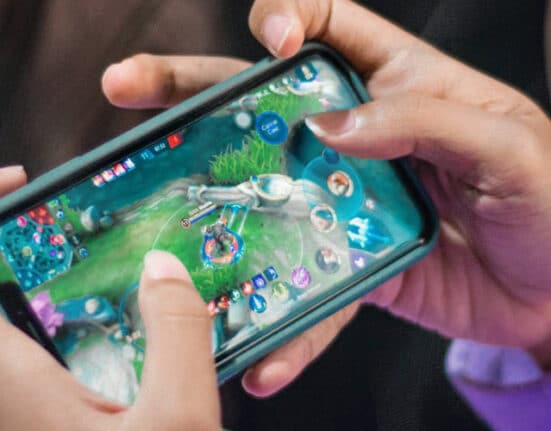WITH over 95% of Filipino internet users being into it, gaming is still often seen as a waste of time. Almost always at the bottom of the daily priority list, it reeks of a sense of complacency, spanning moments of inactivity. For some, it is also a way to misspend precious free time, which could be better used for more productive tasks.
But it doesn’t have to be that way. Gaming, just like any hobby, is an avenue for growth and self-love. It is not a self-destruct button waiting to be pressed by people wanting a little bit of fun. There are numerous channels for people of all ages to enjoy it. Here are reasons why gaming isn’t a waste of time:
Gaming de-stresses the mind
When feeling overwhelmed by life and responsibilities, people turn to quick satisfaction to ease some of this negative energy. Games excel at this by offering an escape of sorts from reality—a way to relax after stressful projects, draining tasks, or exhausting travels.
Stardew Valley lets players feel the ambience of farm life as they grow crops, feed livestock, and interact with fellow villagers while listening to relaxing background soundtracks.
It is joined by Euro Truck Simulator, which offers players the unique experience of driving vehicles across gamified but realistic depictions of German, Italian, Spanish, French, and other European roads.
These non-competitive games give players the choice to pace the game however they want to without compromising the level of fun and focus. With these relaxing games, people can find solace while facing real-world challenges. It also gives players a much-needed break time to avoid fatigue and life and work imbalance.
Gaming enhances critical thinking
People are fond of saying gaming is “full of shooting and fighting violence” for lazy and unproductive individuals who have no concrete life plans. But those stereotypical statements are all bark and no bite.
Numerous studies have already proven that engaging in gaming sessions impacts numerous cognitive skills positively. Adventure puzzles, gripping storylines, and intense real-time strategies challenge players to think outside the box during game time.
In the turn-based Total War titles, players are given command of historical factions like the Julii of Imperial Rome or House Normandy of England in a fight for domination across the battle map. Players can choose which soldier type to recruit and where to march them, but they must be wary of not recruiting too much to prevent bankruptcy or ambushes after a bad army placement.
Mastering logistics and planning is also critical in Cities: Skylines, where utilizing and combining infrastructure bonuses with efficient traffic systems makes a great city. Players must keep the population in this city-building simulator happy by placing schools, police stations, public parks, and other structures at the most suitable locations.
Hundreds of thousands of players worldwide enjoy these multi-themed games where basic to advanced concepts of resource management emerge. These games become a practice ground for executing real-life skills where school or work deadlines have to be planned for and managed with grace.
Gaming helps improve creativity (even a bit too much)
The beauty of gaming isn’t just limited to smashing keypad patterns to get a fatality Mortal Kombat combo finisher. Sandbox games offer players a chance to improve creativity, even for levels a bit too much.
In sandbox games or those where players are given the freedom to interact with game models, resources, or even console commands (hence, the name), players are encouraged to modify and experiment with the game rules to create their unique gaming experience.
In games like Minecraft or Garry’s Mod (also popularly known as GMod), no rules are enforced on how to play the game. Players could spend hundreds of hours building a farm village in Minecraft without ever touching its storyline to slay the Ender Dragon in its lair. They are also free to create games within the game, like GMod Hide and Seek, Prop Hunt, and Guess Who?
Minecraft is even being used to recreate historical architectures including Quiapo Church and the whole of Intramuros, or fictional worlds like Westeros from the A Song of Ice and Fire book saga (from where the hit HBO show Game of Thrones was adapted) with its grand castles like Winterfell, Highgarden, and the Red Keep.
The Grand Theft Auto franchise also comes as one of the most-played titles in gaming history. But aside from its hours-long gameplay, GTA players are welcome to explore the map and exploit glitches. These games are also open to modifications where players can customize character skins (have you seen the WWE 2K wrestling rumble of BINI members?) to add absurd yet humorous and creative additions to the game. Players could control former United States President Barack Obama as the unrelated feudal Japanese Ōbama faction leader in a Fall of the Samurai mod.
Gaming connects and strengthens communities
There are numerous channels for people of all ages to enjoy gaming across different platforms. Through modern technology, games can now be played even in mid-entry smartphones instead of the usual yet expensive gaming PC, console like the Nintendo Switch, or PlayStation.
This accessibility enables more people to socially connect through games they find fun, interesting, and de-stressing. Deep Rock Galactic and Frostpunk players are known for their communities’ welcoming nature, introducing new players to the game while teaching them its ins and outs.
The same goes for the Final Fantasy and Valorant communities, where young players gather in cosplay events worldwide to show off their talents, from creating costumes and video game props to applying makeup and hair art.
With open communities, passion for gaming isn’t confined to the game itself but is present through social gatherings. Pokemon card traders help preserve the global love for Pikachu and friends in public conferences where fans gather to connect with aspiring or veteran card collectors alike.
So, should you try gaming?
Overall, the benefits of gaming are too immense to ignore. Playing games doesn’t have to mean facing mobile phones or PC screens for more than 10 hours nonstop. It could be you opening trending apps like Offline Games while going to school or work.
Just like clothes, no game fits all people. Some games may be wonderfully interesting to someone but be excruciatingly boring to another. It’s about finding the right fit that ticks all your interests.
The primary goal of playing games is to have fun. But with the add-ons cleared minds, enhanced critical thinking, improved creativity, connected communities, and more, who else could say no to thousands of these games? All that is left is you, the player.
With reports from John Lloyd A. Aleta
How useful was this post?
Click on a star to rate it!
Average rating 5 / 5. Vote count: 1
No votes so far! Be the first to rate this post.
We are sorry that this post was not useful for you!
Let us improve this post!
Tell us how we can improve this post?









